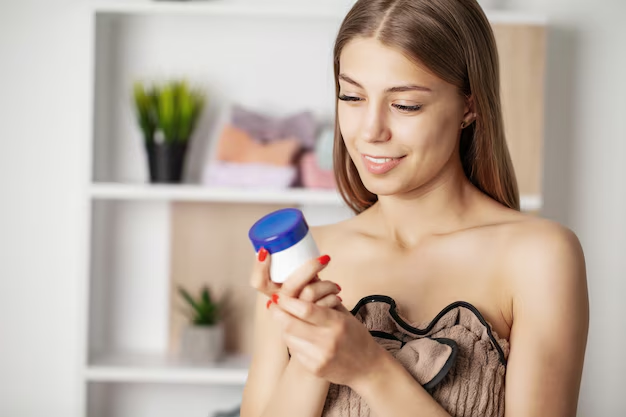Conquering Acne: A Comprehensive Guide to Clear Skin
Are you tired of waking up to pesky acne breakouts that seem to appear overnight? You're not alone. Acne is a common skin condition that affects millions of people worldwide, causing not just physical discomfort but also emotional distress. While there's no magic bullet to completely "cure" acne, there are numerous strategies to effectively manage and reduce breakouts. Let's delve into a holistic approach that covers skincare, lifestyle modifications, and potential medical options to help you on your journey to clearer skin.
Understanding Acne: The Basics
Acne is more than just a skin issue; it's a condition that arises from a complex interplay of factors. To better tackle it, let's break down what causes acne and the types of acne you might encounter.
What Causes Acne?
Excess Oil Production: The sebaceous glands in your skin produce sebum, an oily substance that can mix with dead skin cells and clog pores.
Clogged Hair Follicles: When pores are blocked, they can become inflamed, leading to acne lesions.
Bacteria: The bacterium Propionibacterium acnes thrives in clogged pores, exacerbating inflammation.
Hormonal Changes: Hormones called androgens increase during adolescence and can trigger an overproduction of sebum.
Diet: Foods with a high glycemic index or those that are dairy-based may worsen acne for some individuals.
Stress: Heightened stress levels can wreak havoc on skin health, contributing to breakouts.
Types of Acne
Whiteheads and Blackheads: Known as comedones, these occur when pores are clogged, with the difference being that blackheads are open to air and oxidize.
Papules and Pustules: These inflamed lesions are more severe than comedones and are often tender to the touch.
Nodules and Cysts: These are deeper, painful lesions that can lead to scarring if not managed properly.
Effective Skincare Routine
A consistent skincare routine is foundational in the fight against acne. Your skin will benefit from products tailored to your specific conditions and needs.
A Step-by-step Skincare Guide
Gentle Cleansing: Cleanse your face twice a day with a mild, non-comedogenic cleanser to remove dirt and excess oil without stripping your skin’s natural moisture.
Exfoliation: Use chemical exfoliants like salicylic acid or glycolic acid 1-2 times a week to remove dead skin cells and prevent pore blockages.
Spot Treatment: Apply targeted treatments containing benzoyl peroxide or salicylic acid on active breakouts to reduce their size and severity.
Moisturization: Even oily skin needs hydration. Opt for an oil-free, non-comedogenic moisturizer to keep your skin balanced.
Sun Protection: Use a broad-spectrum sunscreen daily to protect your skin from harmful UV rays, which can worsen acne scars over time.
Avoid Over-washing: Over-cleansing can strip the skin, triggering increased sebum production to compensate.
Lifestyle Adjustments
Beyond skincare, lifestyle changes can significantly impact acne by addressing underlying triggers.
Nutritional Considerations
Balanced Diet: Emphasize whole foods like fruits, vegetables, lean proteins, and whole grains. These can help regulate hormones and reduce inflammation.
Hydration: Drinking plenty of water can support skin hydration and detoxification processes.
Supplements: Consult with a healthcare professional about supplements like zinc, omega-3 fatty acids, or vitamin A, which might support skin health.
Stress Management
Mindfulness Practices: Engage in activities like yoga, meditation, or deep breathing exercises to manage stress levels.
Adequate Sleep: Aim for 7-9 hours of quality sleep per night to support your body's repair and rejuvenation processes.
Physical Activity
- Regular Exercise: Exercise helps boost circulation and reduce stress, both of which can improve skin condition. Just be sure to cleanse your skin post-workout to remove sweat and prevent acne.
Professional Treatments and Alternatives
When home care and lifestyle changes aren't enough, exploring professional treatments can be beneficial. Always consult with a dermatologist for personalized guidance.
Dermatological Treatments
Topical Retinoids: These derivatives of vitamin A help unclog pores and improve skin cell turnover.
Oral Medications: Options like antibiotics or hormonal treatments (like birth control pills) can manage severe acne from the inside out.
Chemical Peels: These exfoliating treatments can help reduce acne marks and control new breakouts.
Laser and Light Therapy: These options target the deeper layers of the skin to reduce bacteria and shrink sebaceous glands.
Natural Remedies
While research on their effectiveness varies, some people find relief using natural remedies like:
Tea Tree Oil: Known for its anti-inflammatory and antimicrobial properties.
Green Tea Extract: Applying or ingesting green tea can reduce sebum production and inflammation.
Aloe Vera: Contains soothing properties that can calm inflamed skin.
The Emotional Component: Dealing with Acne Misconceptions
Acne is often misrepresented as a hygiene issue, leading to unwarranted stigma. It's essential to understand that acne is a medical condition, often driven by hormonal and genetic factors.
Building Confidence
Cognitive Behavioral Techniques: Learning to challenge negative thoughts about your appearance can enhance self-esteem.
Support Groups: Connecting with others who understand your situation can provide emotional relief and assurances.
The Takeaway: Steps Toward Clearer Skin
There's no one-size-fits-all approach to managing acne, but with persistent care and informed decisions, clearer skin is achievable. Overcoming acne is a process that involves patience, consistency, and sometimes professional advice.
Quick Tips for Managing Acne 📌
- 🧼 Cleanse gently twice a day with a mild cleanser.
- ✨ Exfoliate with chemical exfoliants 1-2 times a week.
- 🧴 Moisturize with an oil-free, non-comedogenic formula.
- 🌞 Protect your skin with sunscreen daily.
- 🍏 Eat a balanced diet rich in whole foods.
- 💧 Stay hydrated by drinking plenty of water.
- 🧘♀️ Manage stress with relaxation techniques.
- 💊 Consider consulting a dermatologist for professional treatments.
- 👥 Join support groups to improve mental well-being.
By embracing a comprehensive skincare routine, making thoughtful lifestyle adjustments, and seeking professional advice when needed, you can significantly reduce acne's impact on your life and move toward the healthy, confident skin you deserve.

